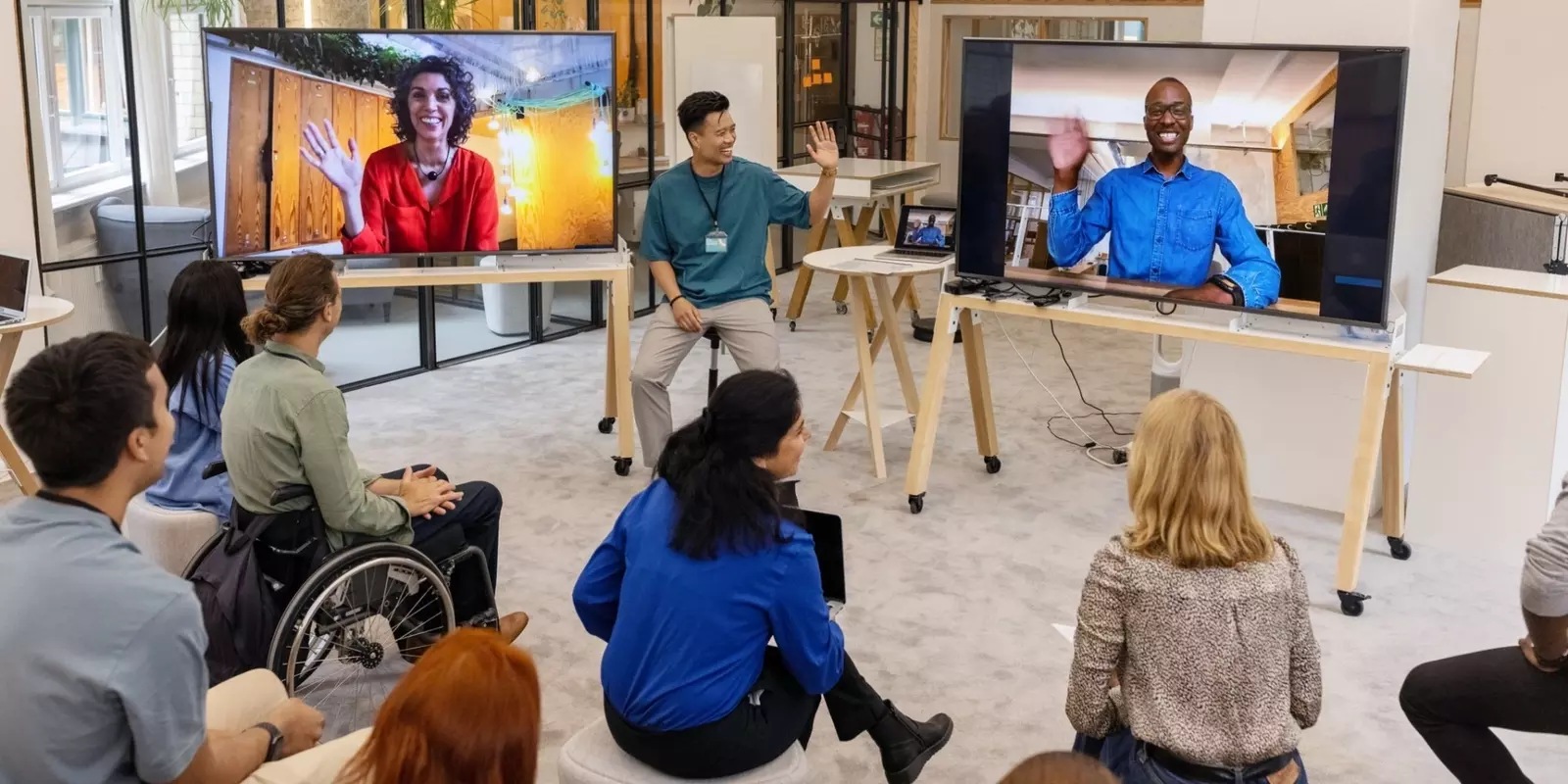Creating a people-centric culture where employees can grow and thrive is critical to succeeding in the modern employment landscape. That means managers, especially those working with or running small work teams, must focus on building and maintaining a culture of trust and belonging to help ensure the project is successfully completed.
When leading a team or project during times of intense change, it may seem like all you can focus on is operational stability. But even the way you approach day-to-day activities can be reframed to appeal to the modern workforce. The key to getting there is centering the decisions you make about your culture, technology, and business goals on one key ingredient -- trust.
For tips about building and maintaining trust in a global, team-centered environment, we went straight to some of our internal experts: UKG 1 Champions Award recipients. These are U Krewers (our nickname for people who work at UKG) who are making significant contributions as members of business integration teams formed from the 2020 Ultimate Software and Kronos merger.
4 Behaviors That Build Trust During Times of Change
1. Cultivate a culture of openness and honesty
Paul Ratcliff -- Principal IT Program Manager
“I’ve found that the most important predictor of a project’s success is people's willingness to speak up. I'm the beneficiary of a lot of positive energy from the team, and I try to reflect and amplify it.”
Avinash G Ghodgaonkar -- Senior Director Strategic Sourcing
“We got to know each other personally, because our team of people from all over the world were getting together on video calls. Developing these relationships helped create trust.”
Questions to ask yourself about building a culture of openness and honesty:
- Do I tell colleagues the truth and follow through by doing what I say I’m going to do, even when difficult?
- Am I treating everyone with the same dignity and respect that I expect and would like to receive without bias, judgment, or personal favoritism?
2. Provide ongoing, two-way feedback
Jiten Adhikari -- Principal IT Software QA Engineering
“Give people an opportunity to learn, express themselves, and prove themselves. Don't jump to conclusion and judge too soon. And get to know each other personally, not just professionally. This helps in being able to approach each other more freely.”
Nataliya Kalashnykova –- Senior Principal Business Systems Analyst
“Sounds obvious, but work with people, not against them. Share documentation and knowledge. Don't just say, ‘This is the way we do it,’ and stop the conversation. Always be open to getting on a call and talking things through.”
Questions to ask yourself about providing feedback:
- Am I listening to teammates and seeking their ideas, suggestions, and opinions?
- Are my personal agendas or career goals interfering with the team’s performance and commitment to its success?
3. Create open, two-way communication
Kristian Reister -- Manager Business Systems Analysis
"During a digital transformation, it’s important to understand that we go through the stages of grief. It takes care and finesse to overhaul the application stack and cross functional business processes. Take the time to understand who each person is individually and cater to their needs. Don't be afraid of crossing functional barriers. When a barrier comes up, bring the right group together and have a conversation. See why the barrier exists, what can be done to break it down, and make decisions to progress forward.”
Ann Allen -- Senior Business Systems Analyst
“Our weekly progress meeting has become a fun event. We get to know each other using Microsoft Teams backgrounds and sharing stories about favorite things like sports teams, music artists, TV series, vacation spots, etc. The winner from the previous week picks the next week’s theme and decides a winner.”
Kim Lacagnina -- Director Business Program Management
“Talk every day to the people who are in the thick of things. Know what they do and how they work. Understand their pain. Be realistic with them about what they can expect. Show them what's coming, answer their questions, give them demos, and support them as they are learning a new system or process. Communicate clearly and often. Be available in case people have questions. Modify your communication style based on what your people care about.”
Questions to ask yourself about creating open communication:
- Do I demonstrate concern and care for each employee, workgroup, and department?
- Do I set a good example and conduct myself in a matter consistent with the organization’s mission, vision, values?
4. Empower your people by eliciting their input on important decisions
Michelle Bissonnette –- Senior Manager Sales Operations
“From the start, I tried to make it clear that my goal during conversations was to learn about products, processes, and people. I wanted to learn from them so we could collectively figure out how to blend our existing processes to make things work. I’d try to encourage people to have confidence in the work that's being done.”
Mike Ahearn -- Assistant Corporate Controller
“We would work independently and then get back together to share information. The people on the project have been fully engaged. They come to meetings prepared and have a sense of pride and ownership in their work.”
Questions to ask yourself about seeking input on important decisions:
- Am I open to teammates’ ideas and including them in the decision-making process?
Am I setting and communicating consistent expectations regarding team, individual, or project objectives?
Download The UKG + Great Place to Work Culture Playbook to get a clear plan for building a people-centric culture of trust and belonging and understanding how it benefits your people and your business.



